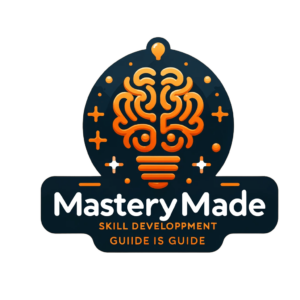As we venture together into the realm of career advancement, we recognize the transformative influence of professional networking strategies. It’s a cornerstone that not only fortifies our ambitions but also paves the way for unforeseen opportunities. In the dynamic landscape of today’s professional world, it’s imperative that we grasp the art of networking for career growth.
Imagine cultivating a garden where every connection is a seed, with the potential to blossom into a thriving professional relationship. It’s through effective networking techniques that we nurture these seeds, ensuring each one is given the attention it needs to flourish. Our goal is to provide you with the foundational insight to channel the power of networking, transforming your career path with every meaningful interchange.
Allow us to guide you through this intricate web of interprofessional connections where every handshake and every exchange can unlock doors to new horizons. And as we embark on this journey, let’s chart a course for success with a blueprint of networking strategies crafted to elevate your career to its peak potential.
Key Takeaways
- Embrace professional networking strategies as an avenue for career elevation.
- Recognize that networking for career growth is more than a mere exchange of business cards; it’s about relationship cultivation.
- Master effective networking techniques to forge and maintain valuable industry connections.
- Harness the power of networking to explore and seize new professional opportunities.
- Utilize thoughtful networking to establish a supportive professional ecosystem.
Understanding the Importance of Networking in Today’s Job Market
The landscape of employment has shifted remarkably over recent years, making the act of expanding your professional network more than a mere accessory to one’s career—it’s now fundamental for growth and stability. As we venture deeper into why this skill is indispensable for modern professionals, we’ll unveil the power of networking skills development and the significance of building connections in the industry.
Why Networking is More Crucial Than Ever
In an era where job roles are continuously evolving, networking stands as a beacon that navigates us through the complexity of the job market. It is the catalyst for unlocking new perspectives, unearthing hidden opportunities, and fostering collaborations that are often not advertised. We’re living in a time when who you know can be as critical as what you know.
The Impact of Networking on Career Opportunities
One’s career trajectory is profoundly influenced by their network’s caliber. Networking paves the way to a plethora of possibilities, from job openings to partnerships, and it’s the undercurrent that often determines the reach of your professional influence. A staggering array of opportunities can spring from a conversation at a conference or a casual exchange on a social platform, emphasizing the need for proactive engagement within your field.
Networking as a Tool for Career Advancement
Advanced networking is not just about creating a list of contacts—it’s about cultivating relationships that enable both personal and professional development. By leveraging a well-nurtured network, professionals can gain insights into industry trends, improve their skill set, and step into roles that might otherwise be inaccessible. The following table presents key aspects where effective networking catalyzes career advancement:
| Networking Aspect | Benefits to Career |
|---|---|
| Information Exchange | Gains access to industry insights and knowledge by exchanging information with peers. |
| Visibility | Increases chances of recognition and awareness within the industry, spotlighting your talents and capabilities. |
| Access to Opportunities | Opens doors to job offers, collaborative projects, and unique career paths not publicly advertised. |
| Mentorship | Enables connection with industry veterans who can provide guidance and support for your career growth. |
As we stress the merits of these networking outcomes, we encourage you, our readers, to not merely observe but actively participate in weaving the fabric of your industry’s network. Mastering the art of professional connectivity could very well be the cornerstone of your next significant career leap.
The Art of Making Genuine Connections
The essence of successful networking strategies isn’t encapsulated by the quantity of contacts one accumulates, but rather by the depth and authenticity of the relationships developed within the professional realm. At its core, professional networking strategies involve recognizing the human element and cultivating bonds that transcend mere business transactions.
Moving Beyond Transactional Networking
Forging authentic connections demands a strategic shift away from perceiving interactions as mere business exchanges. It necessitates a mindful approach, where our conversations and meetings are underpinned by a genuine interest in the person behind the professional title. This shift paves the way for a richer, more collaborative experience, a cornerstone of networking best practices.
Strategies for Building Meaningful Professional Relationships
To nurture strong, meaningful connections within our networks, we must engage in deliberate acts of sincerity. This involves active listening, sharing knowledge without expecting anything in return, and providing support to others in their endeavors. These acts build trust and establish a foundation for a mutually beneficial relationship, central to professional networking strategies.
Mastering the Follow-Up: Keeping Your Network Engaged
Maintaining the connections we’ve worked hard to establish is critical to networking success. A personalized, timely follow-up after an initial meeting reinforces the connection. Consistent, thoughtful communication, whether it’s sharing an article of interest or a simple check-in, keeps your network engaged and reminds your contacts of the ongoing value you bring.

Remember, successful networking strategies are a blend of art and science; they require personal commitment and strategic action, aimed at fostering not just a list of contacts, but a vibrant, supportive community. By integrating these best practices into your approach, you position yourself not just as a networker, but as a valued professional ally.
Professional Networking Strategies
In today’s competitive landscape, networking tips and tricks are more than just buzzwords—they are the linchpin of building a professional network. We believe in equipping our readers with practical, actionable strategies that pave the way toward networking success. As we delve into this segment, we will focus on identifying industry influencers, developing a personal brand, and optimizing online platforms for networking—all under the best practices umbrella.
Identifying Key Influencers in Your Field
Understanding who the movers and shakers in your industry are is crucial. These are individuals with the reach and influence that can help accelerate your career. Via podcasts, publications, and industry forums, you can glean insights into not only who these thought leaders are, but also their networking habits, interests, and potential opportunities for engagement.
Creating a Memorable Personal Brand
Your personal brand is your hallmark in the professional world. It’s what sets you apart and defines your unique value proposition. Crafting a brand that’s both memorable and reflective of your professional persona is essential—it’s not just about a logo or a catchy tagline, but an encapsulation of your skills, experiences, and values that resonate within your industry.
Leveraging Online Platforms for Networking
With the rise of virtual networking, mastering online platforms has become a critical component of networking best practices. From LinkedIn to industry-specific forums, these platforms are fertile ground for connecting with peers, sharing expertise, and engaging with influencers. It’s about being active, value-driven, and engaged—traits that can greatly enhance your networking prowess.
To sum up, implementing these strategies can significantly bolster your efforts in constructing a powerful professional network. By identifying key figures, establishing a strong personal brand, and maximizing online tools, you can forge sustainable relationships that empower both your personal and professional growth. Let’s continue to explore the domain of networking with intent and innovation.
Leveraging Social Media for Professional Networking
As we navigate the complexities of the digital age, it becomes clear that social media is more than just a platform for sharing personal milestones or following celebrities; it’s a robust tool for building professional relationships. We’ll dive into some essential networking tips and tricks that can help you harness the potential of various social platforms as part of your effective networking techniques.
The cornerstone of using social media for professional networking is selecting the right platforms that align with your industry and professional goals. It’s not simply about being present everywhere but about optimizing your visibility and interactions where they matter most. Let’s consider the key aspects to focus on when crafting your social media networking strategy.
- Identify the platforms frequented by your industry leaders and peers.
- Optimize your profiles to reflect your professional brand and expertise.
- Participate in relevant discussions and share valuable insights regularly.
- Utilize private messaging features to initiate one-on-one conversations.
- Join specialized groups or forums for in-depth networking opportunities.
| Platform | Purpose | Best Practice |
|---|---|---|
| Professional Networking | Engage with industry content and connect with thought leaders. | |
| Real-time Industry News | Use relevant hashtags and follow industry-specific conversations. | |
| Community Building | Join groups related to your profession and contribute to discussions. | |
| Visual Branding | Share your professional experiences through stories and posts. |
Remember, the key is consistency and engagement. By actively sharing content, commenting on posts, and reaching out to new connections, you make yourself visible to the professional community. It’s these repeated, meaningful interactions that contribute to building professional relationships that can further your career.
“Social media is not just an activity; it is an investment of valuable time and resources. Surround yourself with people who not just support you and stay with you, but inform your thinking about ways to WOW your online presence” – Sean Gardner.
Following these steps will set a strong foundation for your social media networking efforts, paving the way for opportunities and connections that may have been otherwise inaccessible. So commit to integrating these effective networking techniques into your daily routine, and watch your professional network flourish.
Networking Tips and Tricks for Introverts
For many of us, the prospect of walking into a room full of strangers and initiating conversations can feel overwhelming. We understand the challenges introverts face in such social settings and that’s why we’re here to share some networking skills development pointers tailored to help you build a professional network at your own pace. With our guidance, you can cultivate effective communication strategies that align with your reserved nature while making meaningful professional connections.
Overcoming Social Anxiety in Networking Situations
Feeling anxious about networking is common, especially when it doesn’t come naturally to you. We advocate for a step-by-step approach by setting small, manageable goals for each event you attend. Begin with something as simple as introducing yourself to two new people and gradually increase your targets as you become more comfortable. Remember, quality trumps quantity—it’s better to have a couple of meaningful conversations than to meet everyone without forging any real connections.
Utilizing Online Networking to Your Advantage
In the digital age, the opportunity to network online can be a godsend for the introverted professional. Platforms like LinkedIn, discussion forums, and industry-specific online groups provide a space where you can engage with peers at your own comfortable pace. Start by regularly contributing to discussions and sharing your expertise. This will help you cement your presence in your professional community without the pressure of face-to-face interactions.
Effective Communication Strategies for the Reserved Professional
Embrace your introversion and let it guide your networking approach. Use active listening as your secret weapon—by focusing on understanding and responding thoughtfully to others, you’re more likely to create memorable interactions. Additionally, when it’s your turn to speak, articulate your thoughts on topics you’re passionate about; this not only bores significance and authenticity but also helps you feel more at ease.
We’ve sketched out a helpful comparison to summarize ways in which introverts can navigate networking scenarios with confidence:
| Traditional Networking Approach | Introvert-Friendly Networking Strategy |
|---|---|
| Attending large events | Choosing smaller, more intimate gatherings |
| Initiating conversations with many attendees | Focusing on deepening conversations with a few |
| Immediate follow-ups | Thoughtful, personalised follow-up messages |
| Highlighting personal achievements | Sharing knowledge and insights on relevant topics |
These strategies enable you to play to your strengths and network in a way that feels authentic to you. It’s not about changing who you are—it’s about finding the networking style that fits you best. So, go ahead and start cultivating those connections; your ideal professional network awaits.
Navigating Industry Events and Conferences
As we dive into the world of industry gatherings, it’s essential to recognize these events as fertile ground for expanding your professional network. By employing successful networking strategies, we can turn these opportunities into pivotal career-building moments. Let’s explore how to effectively navigate conferences and maximize our networking potential.
Maximizing Your Presence at Professional Gatherings
To ensure you’re not just another face in the crowd, your presence needs to be felt and remembered. This starts with clear objectives: what do you hope to achieve, and who are the key contacts you aim to connect with? Dressing professionally, actively listening, and asking insightful questions can position you as an engaged and valuable networker.

Pre-Event Preparation for Successful Networking
- Research Attendees: Prior to the event, investigate the list of attendees and speakers. Identify those you consider must-meets for your professional networking strategies.
- Set Goals: Define what success looks like for you at this event. Is it a certain number of quality connections or gaining knowledge in a specific area?
- Plan Your Approach: Devise conversation starters or questions specific to the individuals and companies attending, aiming to establish meaningful dialogue.
- Prepare Your Elevator Pitch: Articulate what you do and what you’re looking for in a succinct and compelling manner.
Post-Event Networking Follow-Ups: Steps and Etiquette
Post-event follow-ups are where many potential connections fade or flourish. It’s crucial to strike while the iron is hot, reaching out promptly after the event while your interaction is still fresh in mind.
| Step | Action | Etiquette Tip |
|---|---|---|
| 1 | Send personalized ‘Thank You’ emails or LinkedIn messages within 48 hours of the event. | Mention a specific conversation point to jog their memory and establish a personal connection. |
| 2 | Propose a clear next step or call-to-action, such as a meeting or phone call. | Be respectful of their time – suggest a couple of time slots and let them choose what works best. |
| 3 | Keep records of who you’ve contacted and when to follow up again if necessary. | Balance persistence with patience. If they don’t respond, wait a week before reaching out again. |
Remember, the key to successful networking strategies at industry events is not only making connections but nurturing them into lasting, professional relationships. Events and conferences are just the beginning of what can be an exciting journey of collaborative growth and opportunity.
Expanding Your Professional Network
In the quest for networking for career growth, we understand that diversity in your connections can lead to a wealth of opportunities. Let’s focus on broadening our horizons, reaching out to different sectors and beyond our borders to forge a dynamic, multifaceted professional network.
Branching Out: How to Approach Different Industry Sectors
To truly enhance our professional networking strategies, it’s crucial to venture into various industries. This not only diversifies our network but also enriches our perspectives. Approaching different sectors requires an open-minded strategy, where we’re not just looking to gain, but also to contribute value through our unique skills and experiences.
The Role of Mentorship and Sponsorship in Networking
Building a professional network is greatly amplified by the presence of mentors and sponsors. These relationships are practical facets of a sound professional networking strategy, providing not just guidance but also advocacy within your field. The impact of these connections is profound—having a well-respected individual vouching for you can speed up your career advancement remarkably.
International Networking: Connecting with Professionals Abroad
The modern professional is no longer bound by geography. International networking pushes the envelope of building a professional network by connecting with a global community. The insights and varying perspectives derived from international networks are invaluable, giving us a unique edge in our career progression.
| Networking Aspect | Benefits | Approach |
|---|---|---|
| Inter-Industry | Exposure to diverse ideas and practices | Industry events, joint forums |
| Mentorship | Personal growth and guidance | Seeking out industry leaders |
| Sponsorship | Career advocacy and opportunities | Developing reciprocal value relationships |
| International | Cross-cultural insights and global opportunities | Virtual conferences, social media platforms |
We’re committed to traversing the landscape of professional relationships. Whether it’s branching into new sectors, seeking mentorship and sponsorship, or connecting with peers across the globe, our focus on building a professional network as part of our career growth campaign remains unwavering. Through these diverse avenues, we fortify our professional networking strategies to support not only our own ambitions but also the collective advancement within our respective fields.
Conclusion
We’ve journeyed through a landscape riddled with invaluable tips and wheelbarrows of insight, all designed to cultivate your garden of professional connections. To close, let’s hydrate the seeds we’ve sown by revisiting the key takeaways from our collective exploration of professional networking strategies. Anchored in the shared belief that a well-tended network is the cornerstone of career success, we’ve unearthed the networking tips and tricks to help your professional relationships flourish.
In each section, we offered a bouquet of effective networking techniques, from the art of genuine relationship building to navigating the digital landscape of social media connections. By implementing these successful networking strategies, not only do you set the stage for growth, but you also open yourself up to a world where opportunities are plentiful, and your career potential knows no bounds.
As we part ways, let us impart this final note: Your network is a living entity, constantly evolving, essentially reflective of the care and effort you sow into it. We urge you to take these strategies and infuse them into your professional life. For in the garden of opportunity, it’s the diligent gardener who reaps the most bountiful harvest. Cultivate these connections, and watch as your career transforms, blooming into its fullest expression.
FAQ
What role do professional networking strategies play in career development?
Professional networking strategies are crucial for career development as they enable individuals to connect with others in their field, gain industry insights, seek advice, and potentially open up new job opportunities. Networking is a dynamic tool that helps in building valuable contacts that can propel career growth and provide support throughout one’s career journey.
Why is networking more important than ever in today’s job market?
Networking has become especially important in today’s job market due to the fast pace of change and the competitive nature of many industries. A strong network can offer access to job openings that aren’t advertised publicly, provide referrals, and introduce you to influencers who might be instrumental in your career progression.
How can one move beyond transactional networking to build meaningful professional relationships?
Moving beyond transactional networking involves focusing on building long-term relationships based on mutual interests, respect, and support. Engage others with genuine curiosity, provide value without expecting immediate returns, and maintain consistent communication. This approach can lead to deeper, more meaningful professional relationships.
What are some key strategies to identify and connect with influencers in my field?
Identifying and connecting with influencers requires research and a strategic approach. Begin by following their work, participating in industry forums, and engaging with their content. Attend events where they speak and introduce yourself with a clear and memorable message about your interests and what you bring to your field. Networking platforms are also an excellent avenue to start building a connection.
How can I create a personal brand that stands out when networking?
Creating a standout personal brand involves showcasing your unique skills, experiences, and personality. Be consistent in your communication, whether it’s on social media, your personal website, or at networking events. Offer valuable content and insights that reflect your expertise and align with your industry’s trends.
What are some effective ways to leverage social media for professional networking?
Social media can be leveraged for professional networking by optimizing your profiles to reflect your professional image, consistently sharing and creating content that showcases your expertise, and engaging with your industry community. Use it to build relationships by commenting on posts, joining groups, and connecting with people who share your professional interests.
What networking tips do you have for introverts or individuals with social anxiety?
For introverts or those with social anxiety, it’s essential to prepare ahead for networking situations, set realistic goals, and focus on making just a few meaningful connections. Online networking can be a more comfortable starting point, as it allows for thoughtful, written communication. Practice active listening and have a set of questions ready to help steer conversations.
How should I prepare for networking at industry events and conferences?
Prepare for networking at industry events and conferences by researching the attendees and companies that will be present. Have a clear objective for your networking, update your LinkedIn profile, and have business cards ready. Prepare an elevator pitch that succinctly describes who you are, what you do, and what your goals are. Network actively but also be present and engaged during sessions.
What steps should I follow for effective post-event networking follow-ups?
Effective post-event networking follow-ups include personalizing communication, reminiscing about shared experiences from the event, and proposing a specific reason for staying in touch. Send your follow-ups promptly, and remember to be courteous, professional, and respectful of the other person’s time. Establishing a reason for future encounters or ongoing communication is key for a successful follow-up.
In expanding my professional network, how can I effectively approach different industry sectors?
When approaching different industry sectors to expand your network, be open to learning about the new sector’s culture and dynamics. Attend cross-industry events, participate in webinars, and follow sector-specific news. Networking within varied sectors can provide a fresh perspective and open doors to diverse opportunities that may align with your skill set and career aspirations.











